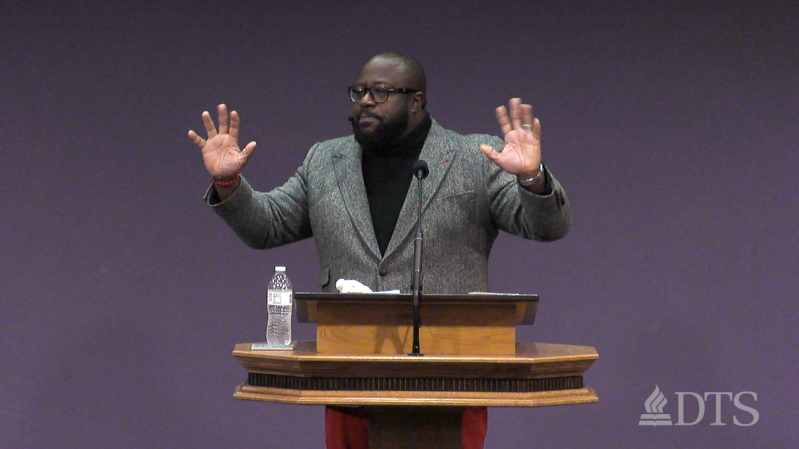
During a recent appearance at Dallas Theological Seminary, Dr. Eric Mason, Lead Pastor of Epiphany Fellowship in Philadelphia, PA, used Scripture to show what, exactly, Jesus Christ has to say about justice and how it should impact the Church today.
In beginning his message, titled "Woke Church", Dr. Mason defined "woke" as an "urban colloquialism" that essentially means "to be aware" of the racism and social injustice pervasive in society: "[Black nationalists and those in the Black Consciousness movement] utilize that term as a way for you to begin to use sociology and history as a way to be awakened to the reality that something's wrong with systematic racism in our country and in our world," Dr. Mason explained.
Thankfully, everything in this world - with the exception of demons - is redeemable, Dr. Mason contended, even the word "woke".
"I believe that the 'wokest' people on the planet should be believers...across the globe," he said. "I believe 'wokeness' should find its way into the christological psyche as God is conforming us with His goal...that is, to conform us to the image of Jesus Christ."
He went on to quote Matthew 23:23, which reads: "Woe to you, teachers of the law and Pharisees, you hypocrites! You give a tenth of your spices-mint, dill and cumin. But you have neglected the more important matters of the law-justice, mercy and faithfulness. You should have practiced the latter, without neglecting the former."
This passage is prophetic today, the pastor said, because it call us to become aware of the blind spots in our culture, be it racism or social injustice.
In fact, Dr. Mason believes Jesus connects justice to intimacy with God: "Theology should always find its way into the matrix of intimacy in your heart that leads you to practices - not just proclamation, but proclamation and practices," he said. "This idea of judgement here is taking God's Word and properly, ethically applying it in every single area of your life."
As we talk about justice in society, the church has to see it primarily as a theological issue - not a sociological issue: "If you don't see it as a biblical and theological issue, you will look at it as an option," he explained.
When we are first burdened about the Gospel and have Gospel eyes on, we see something beautiful when we see the word "justice" and are thus given a desire to help and support those most affected by poverty, racism, and social injustice.
Jesus urged His follower to show mercy when it comes to the law: "Why should we have a merciful position? Because it if had not been for Jesus Christ dying on the cross for your sins and mine, all of us would be going to hell," Dr. Mason explained. "So, when you see your need for mercy, even if you can't understand the need for mercy on somebody else's behalf, the thing you should have commonality on is...His mercy as something we all need and receive and should be the means by which we look at everything. Everything we look at must have an empathetic position."
He continued: "We need to be begin raising our race IQ, we need to being building grounds of mercy so we can build relationships that exceed racial relationships. You shouldn't just build a relationship with somebody that's not the same ethnicity as you to understand your ethnicity...We should be naturally building God-driven relationships with people because they're people, because they're our neighbor."
Finally, Jesus call us to faithfulness and consistency in the midst of adversity: "Faithfulness points to covenant commitment," Dr. Mason said "Who more equipped to be faithful because of what Christ has done for us than us? This beautifully poinst to the cross. Jesus Christ on the cross unjustly died, but justly paid for our sins by drinking up and licking the bowl of God's wrath."
He concluded: "I believe that the church is going to be in a season where God is exposing us in a way that's going to demand we lose our perceived privileged positions so that we can return to being a prophetic voice versus a pathetic voice to our culture."






